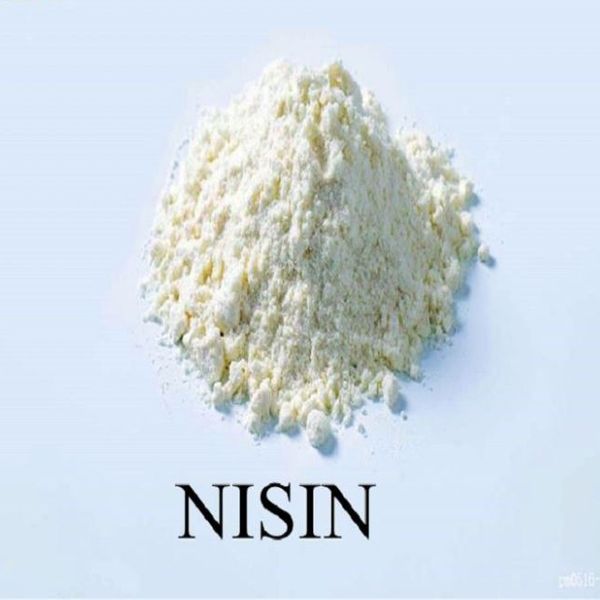Nisin, also known as streptococcus lactis peptide, is a peptide produced by streptococcus lactis. It is composed of 34 amino acid residues and has a molecular weight of about 3500 Da. Because Nisin can inhibit most gram-positive bacteria and has a strong inhibitory effect on the spores of bacillus, it is widely used as a food preservative in the food industry. After eating in the body’s physiological pH conditions and under the action of alpha – chymotrypsin hydrolysis into amino acids, soon will not change the human intestinal normal flora and produce as other antimicrobial resistance problems, not other antibiotics and cross resistance, is a highly efficient, non-toxic, safe, no side effects of natural food preservatives.
Nisin is a polypeptide compound composed of a variety of amino acids, which can be absorbed and used by the human body as a nutrient. In 1969, the United Nations Food and Agriculture Organization / World Health Organization (FAL / WHO) Joint Committee of Food Additives confirmed that nisin can be used as a food preservative. In March 1992, the Chinese ministry of health approved the implementation of the document that “it can be scientifically considered that Nisin is safe as a food preservative”. It can effectively inhibit the growth and reproduction of many gram-positive bacteria that cause food spoilage, such as clostridium botulinum, staphylococcus aureus, streptococcus haemolyticus, listeria, bacillus thermophilus, and especially gram-positive bacteria that produce spores. The antibacterial effect of Nisin is to interfere with the normal function of cell v membrane, resulting in the infiltration of cell membrane, nutrient loss and membrane potential decline, thus leading to the death of pathogenic bacteria and spoilage bacteria cells. It is a kind of non-toxic natural preservative, which has no bad effect on the color, aroma, taste and taste of food. It is widely used in dairy products, canned goods, fish products and alcoholic drinks.
Nisin has an irreversible bactericidal effect, can be digested into amino acids by protease hydrolysis in the human digestive tract, is harmless to health and has biological activity at low concentrations, it is a relatively safe preservative and will not change the intestine The normal flora of the tract will not cause drug resistance, nor will it be caused by the resistance of other antibiotics. Microbial toxicity studies on nisin show that no microorganisms are sad or pathogenic on their own, and are safer without side effects.
Post time: May-27-2020
